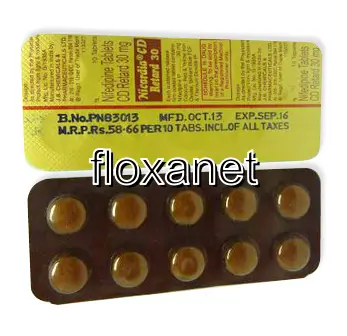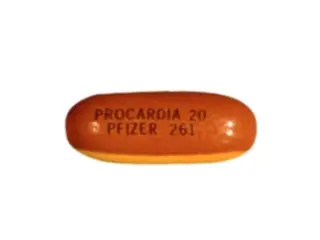| Package | Dosage | Price | Price per Dose | |
|---|---|---|---|---|
| Dosage: 10mg | ||||
| 360 pill | 10mg | £207.81 | £0.58 | |
| 180 pill | 10mg | £113.16 | £0.63 | |
| 120 pill | 10mg | £82.29 | £0.69 | |
| 90 pill | 10mg | £68.92 | £0.76 | |
| 60 pill | 10mg | £52.46 | £0.87 | |
| 30 pill | 10mg | £30.85 | £1.03 | |
| Dosage: 20mg | ||||
| 360 pill | 20mg | £247.93 | £0.69 | |
| 180 pill | 20mg | £136.82 | £0.76 | |
| 120 pill | 20mg | £102.87 | £0.85 | |
| 90 pill | 20mg | £88.47 | £0.98 | |
| 60 pill | 20mg | £66.86 | £1.12 | |
| 30 pill | 20mg | £42.17 | £1.42 | |
| Dosage: 30mg | ||||
| 180 pill | 30mg | £266.45 | £1.48 | |
| 120 pill | 30mg | £192.38 | £1.60 | |
| 90 pill | 30mg | £157.40 | £1.75 | |
| 60 pill | 30mg | £119.33 | £1.99 | |
| 30 pill | 30mg | £69.95 | £2.35 | |
| 10 pill | 30mg | £26.74 | £2.72 | |

Nifedipine Description
Overview of Nifedipine
Nifedipine is a medication commonly used to treat high blood pressure (hypertension) and chest pain caused by angina. It belongs to a class of drugs known as calcium channel blockers, which work by relaxing and widening blood vessels. This action helps to improve blood flow, reduce the workload on the heart, and lower blood pressure levels. Nifedipine has been a vital component in managing cardiovascular conditions for many years, offering effective relief for patients with hypertension and angina pectoris.
Mechanism of Action
The primary mechanism of Nifedipine involves blocking the influx of calcium ions into the smooth muscle cells of the heart and blood vessels. By inhibiting calcium entry, the medication causes the muscles to relax, leading to vasodilation. This vasodilation results in decreased peripheral resistance, which helps to lower blood pressure. For angina, the improved blood flow to the heart muscle alleviates chest pain and reduces the frequency and severity of anginal attacks.
Benefits and Efficacy
Nifedipine is highly effective in controlling hypertension, often leading to significant reductions in blood pressure levels. Its rapid onset of action makes it particularly useful for treating acute episodes, especially in its short-acting formulations. Patients with angina also experience a decrease in symptoms, as Nifedipine enhances coronary blood flow. Many users report improved quality of life due to fewer anginal episodes and better blood pressure control. The medication is generally well-tolerated when used appropriately and under medical supervision.
Common Side Effects
While Nifedipine is effective, it can cause some side effects. The most commonly reported issues include headaches, flushing, dizziness, and swelling in the ankles or legs. Some individuals may also experience nausea or a feeling of tiredness. These side effects are often mild and tend to improve with continued use or dose adjustments. However, in rare cases, more serious adverse reactions such as a rapid heartbeat or allergic reactions may occur, requiring immediate medical attention.
Precautions and Considerations
Patients should inform their healthcare provider about all existing health conditions before starting Nifedipine. It is particularly important for those with heart problems, liver issues, or a history of allergic reactions to calcium channel blockers. The medication may interact with other drugs, such as beta-blockers or medications for erectile dysfunction, increasing the risk of adverse effects. Pregnant or breastfeeding women should consult their doctor before using Nifedipine, as the safety during pregnancy has not been fully established.
Usage and Dosage
Nifedipine is available in various formulations, including tablets, capsules, and extended-release versions. The dosage depends on the condition being treated, the severity of symptoms, and individual patient response. It is essential to follow the prescribed instructions carefully. Typically, it is taken once or twice daily, with or without food. Consistent use as directed by a healthcare provider helps achieve optimal blood pressure control and symptom relief. Patients should not alter their dose or stop medication suddenly without medical advice to prevent rebound hypertension or angina.
Conclusion
Overall, Nifedipine is a vital medication for managing hypertension and angina. Its ability to relax blood vessels and improve blood flow makes it an effective choice for many patients. While it has a favorable safety profile for most users, attention to potential side effects and interactions is crucial. Regular monitoring and consultation with a healthcare professional ensure that Nifedipine provides maximum benefits with minimal risks. Proper use and adherence to medical guidance can significantly enhance cardiovascular health and quality of life for those needing this medication.

